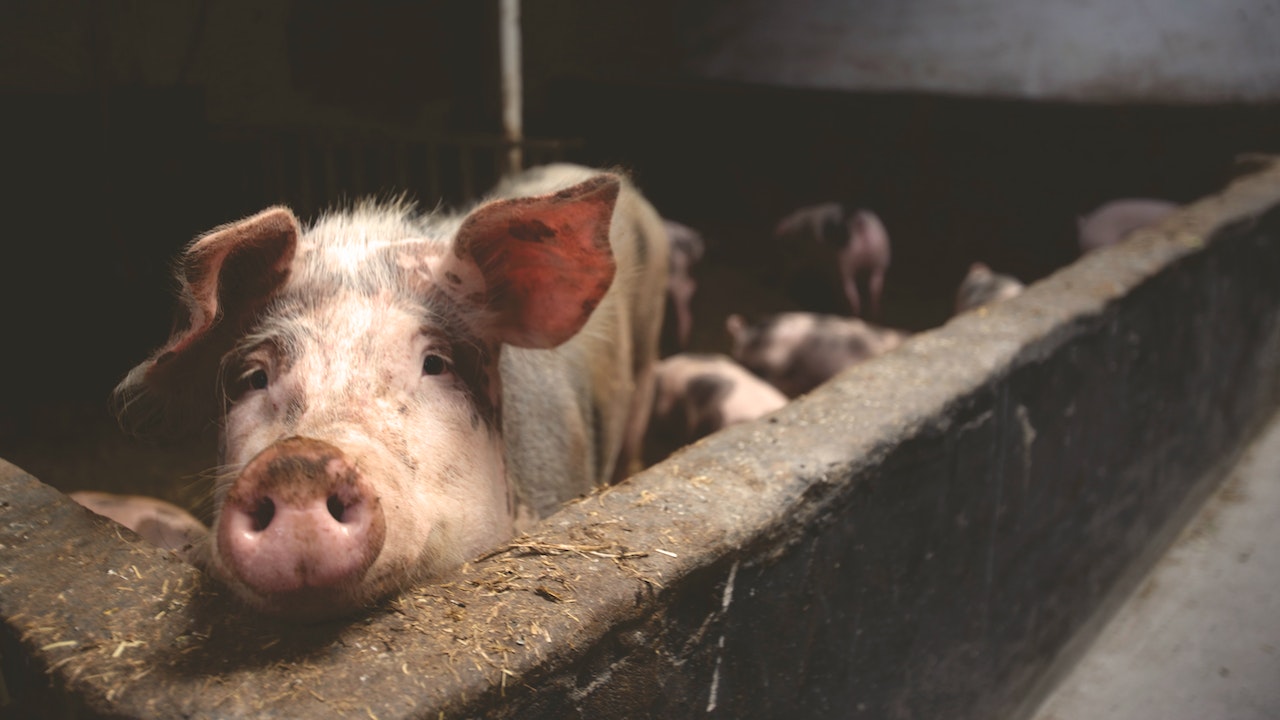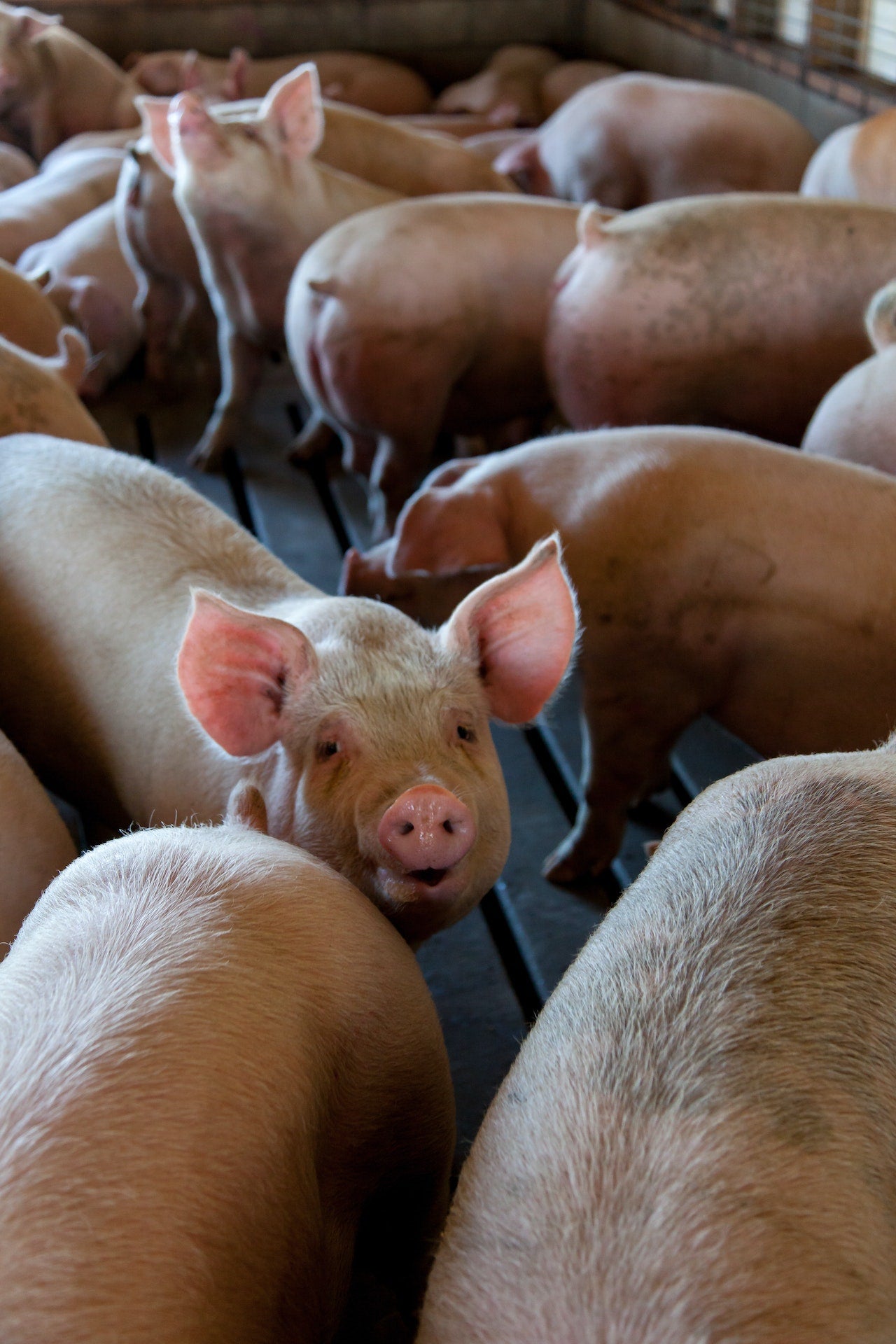
Are you a pig farmer? Do you own a pig as a pet? Have you picked up an interest in pigs’ nutrition and diet? If you have ever wondered about the things pigs can and cannot consume, then this is for you.
Coconut is the edible fruit of the coconut palm, a member of the palm family. It is fleshy with a hollow core that is filled with liquid (coconut water). Coconut is rich in fats and oil, carbohydrates, dietary fibers, minerals, and vitamins
Can Pigs Eat Coconut?
WHAT KIND OF PIGS CAN EAT COCONUT?
Generally speaking, all pigs can eat coconut. Pigs of all ages, genders, breeds, etc. can safely consume this nutritious fruit!
BENEFITS OF FEEDING COCONUT TO YOUR PIGS
Coconuts are rich in a lot of nutrients. They possess some qualities that make them healthy for your pigs. These include:
- Coconut is rich in fat.
- Coconut is rich in dietary fiber.
- Coconut is rich in vitamins.
- Coconut is rich in minerals.
Coconut is rich in fats:
According to the United States Department of Agriculture (USDA), coconut contains 33 grams of fat per 100 grams. This shows that coconut is a rich source of fats for your pigs.
Fats are important to the productivity and health of pigs. Some of them are:
-
Fat is an excellent source of energy for your pigs:
Fat is a good source of energy. They are even a better source of energy than carbohydrates. One can say that fats provide at least twice as much energy as carbohydrates.
-
Fat is beneficial to lactating sows:
Fats improve the milk yield of sows. It increases the fat content of milk. All these add to the nutritional value of your lactating sow’s milk. Hence, making the milk better for the piglets.
-
Fat increases litter weaning weight:
Weaning weight simply means the weight of a young pig when it stops breastfeeding. Feeding your pigs with coconut increases their litter-weaning weight.
-
Fats increases birth weight and chances of survival:
Feeding coconut to your pigs can increase the birth weight of their offspring. Coconuts can also positively affect the lifespan of your pigs.
-
Fats maintain performance during heat stress:
Heat stress is commonly caused by high temperatures. Pigs are more sensitive to heat stress than other animals since pigs cannot sweat. Luckily, fats can help curb the negative effect on the performance of pigs that is caused by heat stress.
-
Fats aid the transport of some vitamins:
After food digestion, the vitamins in the food need to be transported to the body. Some of these vitamins are not soluble in water, and thus, cannot be transported by a water-based medium. Therefore, feeding coconut to your pigs helps in the supply of fats that can aid the transportation of fat-soluble vitamins.
Coconut is rich in dietary fiber:
Coconut is packed with a lot of fiber that your pigs need. By weight, dietary fiber accounts for 9 to 10% of the discount. The fibers in coconut are necessary to maintain a healthy microbiome in your pig’s digestive system. Generally, dietary fiber plays the following role in your pig’s physiology:
-
Dietary fibers reduce the risk of constipation:
Constipation is a medical condition that is characterized by difficulty in passing feces. The feces are usually hardened and dry. Occasionally, the strain to pass out the hardened feces by the pig may lead to bleeding of its anal canal.
Therefore, if your pig shows signs of constipation such as a humped back, excessive straining to defecate, and little hard balls of feces, amongst others, you should consider adding coconuts to their diet.
-
Dietary fibers can increase satiety:
The fibers that are packed in coconuts give your pig the feeling of satisfaction after eating them. This controls hunger in the pig.
- Dietary fibers improve gut health and increase visceral mass in pigs.
Fibers improve gut health by providing a good environment that fosters the growth of some beneficial bacteria. The fibers in coconut also aid in the lubrication of the pig’s bowel. This facilitates the movement of food substances in the pig’s gut during digestion.
Coconut is rich in vitamins:
Coconut is rich in two major vitamins. They are vitamin C and vitamin B6.
-
VITAMIN C:
- Vitamin C improves reproduction. Lately, vitamin C has been included in diets for stud boars as it has been shown to improve sterility.
- Vitamin C generally maintains cells' health and keeps them in good shape.
- Vitamin C aids in the absorption of minerals such as iron.
- Vitamin C plays a role in the formation of collagen.
-
In the event of injury to your pig, vitamin C helps your pig recover.
-
VITAMIN B6:
- Vitamin B6 is responsible for many things in pigs. It is needed by pigs for better productivity and health.
- The deficiency of vitamin B6 in pigs is characterized by: decreased appetite, lethargic behavior, and reduced movement.
- Hence, if your pigs show signs of vitamin B6 deficiency, you should consider adding coconut to their diet.
Coconut is rich in minerals:
Minerals are trace elements that are needed for the optimal development and growth of living things. Coconut is rich in several important minerals. Some of them are:
Coconut also contains manganese, sodium, phosphorus, selenium, and cobalamin in small quantities.
SATURATED FAT IN COCONUT
Coconut is rich in saturated fat. Saturated fat is an unhealthy fat. Therefore, if coconut is given to your pig in high amounts, it can cause bad cholesterol to build up in blood vessels. This leads to obstruction of the blood vessels and, consequently an increase in blood pressure.
CONCLUSION
Coconut can be safely consumed by your pigs. Coconut is rich in fats, dietary fiber, vitamins, minerals, and carbohydrates. However, it should be fed to your pigs with caution. Do well to report unusual changes in your pig’s behavior to your veterinarian after you introduce coconut to your pig’s diet.


